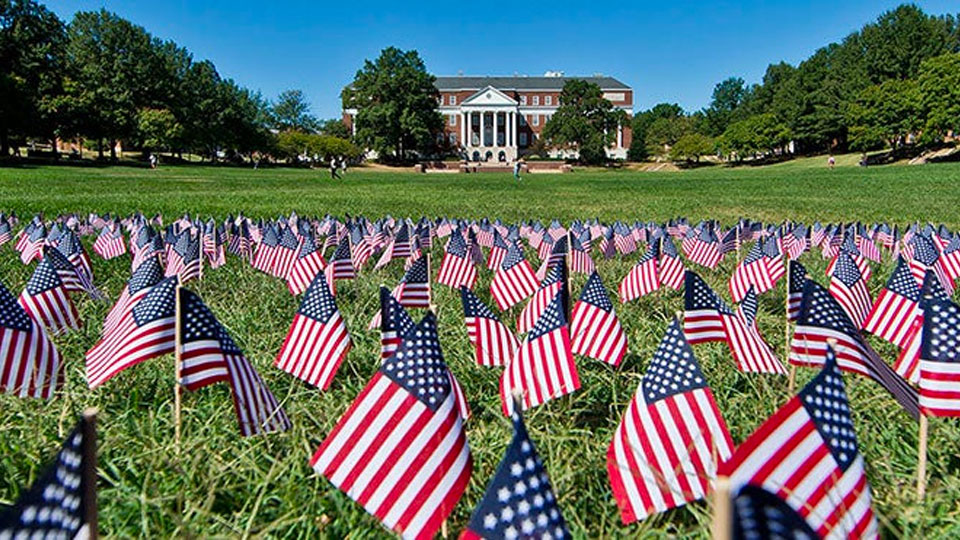Centers & Initiatives
Pioneering business research can prepare students to be transformational business leaders, and equip companies to transform themselves and their markets.
At the Smith School we have created a cluster of Centers of Excellence that serve as the intersection of scholarship and the marketplace, putting breakthrough research at the service of students and companies. Each of our centers immerses our students in complex and evolving marketplaces in which success depends on critical thinking, creativity and entrepreneurship.
We have also added exciting new Initiatives to further augment the learning experience, align with industry and government trends, and chart the future of business.
Centers

The Center for Artificial Intelligence in Business pioneers AI research and outreach. With a focus on human judgment and creativity, it fosters safe, innovative products and services through intentional AI-enabled design and governance frameworks.
The Center for Excellence in Service (CES) is an academic research center with a network of Smith faculty members who are thought leaders in service marketing and management.

The Center for Financial Policy leverages the Smith School’s world-renowned faculty, leading research, and proximity to Washington, D.C. to promote a collaborative exchange of ideas on the key issues that affect financial markets.
The Center for Global Business (CGB) is the driver of internationalization and global mindset education at the Smith School and a preferred partner for international commerce in the state of Maryland, specifically in regard to training and supporting students, companies, and current and future business leaders to engage successfully in global business.
The Center for Social Value Creation embodies a passionate mission: to educate, engage and empower the Smith community and the world through thought-provoking dialogue, thought leadership, and hands-on experience.
At the Dingman Center, we create an inclusive environment where we educate, empower and equip students with the business skills needed to be an entrepreneur and the resources necessary to make their business ideas a reality.
The guiding principle for the Ed Snider Center is that social progress is born of free and creative individuals who, driven by self-motivation, passion, and a positive approach to trading value for value, make the world a better place.
The Supply Chain Management Center at the Robert H. Smith School of Business is dedicated to conducting research and education designed to further the discipline of supply chain management.
Initiatives
Expanding understanding of business analytics and relevant careers, the Robert H. Smith School of Business runs the Smith Analytics Consortium (SAC). A partnership between industry and Smith’s diverse, inclusive community, the Consortium serves as a central hub for networking, thought leadership, experiential learning, co-curricular activities and collaboration opportunities enhancing the Smith student experience and giving back to the business community.

Promoting veterans as strategic assets for a united economy.

The imperatives facing America's government and market leaders have rarely overlapped with the complexity they do today. At the Smith School, we aim to help with new programs and partnerships to promote the future of U.S. public-private talent, training, and research.
Corporate risk officers are grappling with a host of nontraditional risks associated with and ranging from cyber to climate. The Smith Enterprise Risk Consortium recognizes these emerging risks and endeavors to address them through research, tools and education.
News
COLLEGE PARK, Md. - Nov. 17, 2014 - The University of Maryland’s Robert H. Smith School of Business has appointed Brent Goldfarb as academic director of the school’s Dingman Center for Entrepreneurship.
Kenyon Crowley, deputy director of the Smith School’s Center for Health Information Decision Systems (CHIDS), is part of a doctoral-student team whose disaster response system captured first place in a recent international competition.
How do you translate an MBA education into an impact-driven career? That was the topic of conversation at the Social Impact Careers panel discussion hosted by the Robert H. Smith School of Business's Office of Career Services on Monday, Novemeber 10th.
Statistics show that most startups fail – but not because they lack good ideas, products or technology. Most startups fail because they lack enough of the right customers and a clear plan of action.
Cliff Rossi Book Lays Out ‘Roll-Up the Sleeves Approach’ for Pros, Students
He saw the subprime meltdown from the inside of Citi, WaMu and Countrywide. He’s given expert testimony on risk governance on Capitol Hill.
COLLEGE PARK, Md. and BALTIMORE, Md.
Foundation Led by Alumnus Ed Snider Pledges Support for Study of Free Enterprise
Officials are applying social media, such as the CDC Emergency Twitter handle, to disseminate Ebola-related information and using wireless networks to track and predict outbreak patterns and locate individuals exposed to the virus.
The 2014 Maryland Social Entrepreneur Corps (MSEC) wrapped up this month with an evening symposium for students to share their experiences with program partners, sponsors and prospective students. This past summer, fifteen UMD undergraduates traveled to Nicaragua, the Dominican Republic and Ecuador to support sustainable economic development.